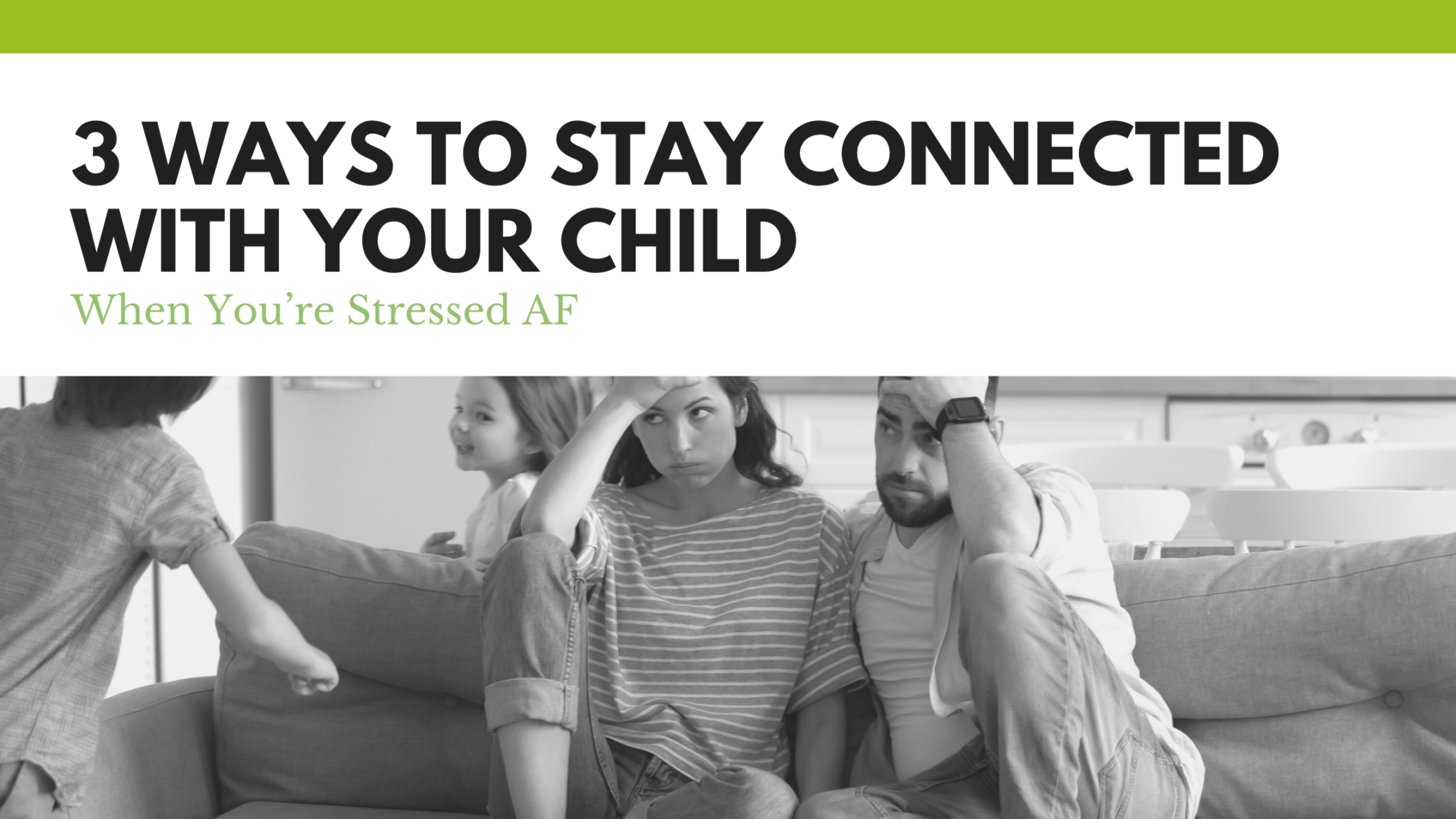Staying connected during stressful times is good for both you and your child. Studies have shown that once we form an attachment, we then form a physiological unit. This means that parents help to regulate their child’s blood pressure, heart rate, breathing, and the levels of hormones in their child’s blood. Just by being present!
On the flip side … because parents and their children are a physiological unit, children can pick up on their parent’s stress. This can lead to acting out behaviors by the child, which increase parent’s stress more and creates an ongoing cycle.
This means, when stress levels are high, its going to be harder than ever for you to support your child because they are going to be extra difficult in response to feeling your stress, but it also means they need you physically and emotionally available to support them so that you can break the cycle and your own stress level can also go down!
It’s no easy task. So, here are some quick tips to increasing connection without overwhelming your already busy schedule…
1. Self Care
Try to find ways to manage your own stress, including incorporating self-care activities (i.e. can be as simple as taking a bubble bath, saying “no” to someone, taking a nap, watching a funny movie, etc.). There are sooo many good, simple self-care lists online to get ideas and get started.
2. Daily check-ins
Children don’t always want to talk and that’s okay! By letting them know you’re there if they need you, you are making them feel supported and safe. The more a child feels they can depend on you, the safer the child feels to be creative, challenge themselves, and strive towards independence. Maybe they just need a hug or some back rubs- remember you’re a physiological unit!
When they DO want to talk, try not to go straight into problem-solving mode (this is so hard sometimes!). Listen to how they are feeling and validate those feelings, letting them know that you hear them- even if you don’t agree. Problem-solving can come when they are emotionally ready, and this might involve helping them advocate for themselves or, if necessary, you being their advocate.
3. Family Time
Schedule Family Time where everyone can disconnect from their phones, homework, and other distractions, in order to fully connect with one another… more tips on this to come in our next post!

